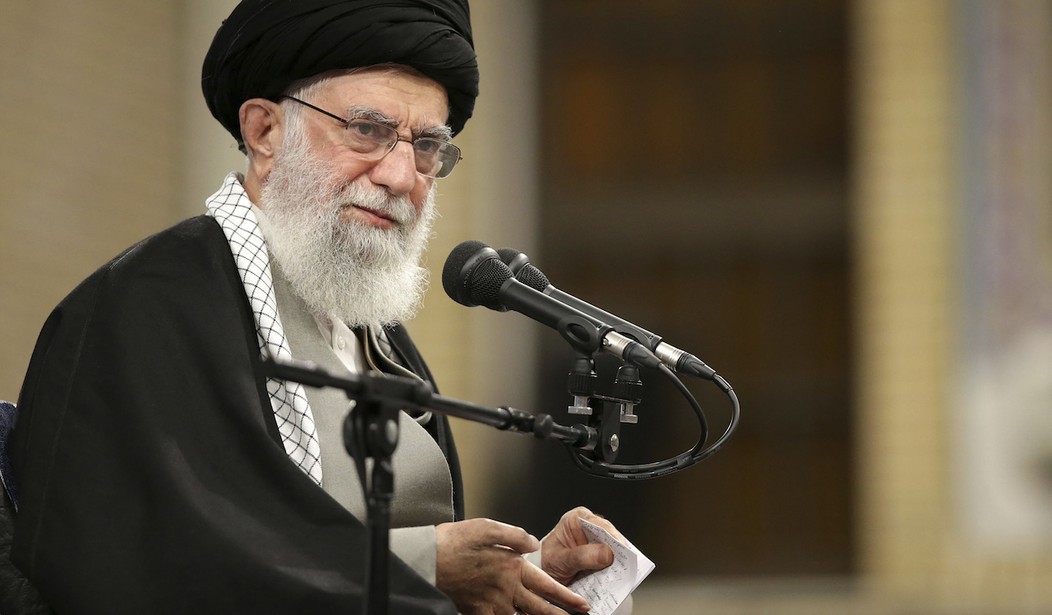Tisha B'av has come and gone. So too have two full weeks since the Israelis took out Ismail Haniyeh in Tehran, as well as a top Hezbollah figure in Beirut and an IRGC aerospace general in Syria. Iran and its proxies immediately issued threats of massive retaliation for the assassinations.
And then ... nothing happened, at least so far. Iran suddenly took a very cautious tone last week, although it seemed unclear whether that was a real reconsideration or just strategic ambiguity.
If this report out of Kuwait is accurate, it's the former -- and Iran's proxy terror armies are getting angry about it:
Iran has angered its allies, particularly Hezbollah and Hamas, by once again urging caution in responding to Israel after the assassinations of high-ranking Hezbollah terrorist Fuad Shukr and Hamas political leader Ismail Haniyeh, the Kuwaiti newspaper al Jarida reported on Wednesday.
According to the report, while Iran has recently signaled a willingness to delay its response to Haniyeh's assassination, a source within the Iranian Revolutionary Guard's Quds Force revealed to the Kuwaiti news outlet that a heated meeting took place on Sunday in Tehran between representatives of Iran's regional allies and the Revolutionary Guard leadership.
This meeting exposed a significant rift, the report noted, which escalated into a verbal clash and ended with some allies storming out in anger.
The Iranians want to keep the powder dry for a potential rescue of Hamas through hostage talks, according to Kuwaiti media. That's not the first time we've heard that, and it may be why Benjamin Netanyahu has decided to send a high-level delegation to Doha. Those talks begin tomorrow, in fact, although Hamas will not show up:
“Hamas is committed to the proposal presented to it on July 2, which is based on the UN Security Council resolution and the Biden speech and the movement is prepared to immediately begin discussion over a mechanism to implement it,” said Abu Zuhri.
Hamas’s absence from the talks, however, does not eliminate the chances of progress since its chief negotiator Khalil al-Hayya is based in Doha and the group has open channels with Egypt and Qatar.
A source familiar with the matter says Hamas wants the mediators to come back to them with a “serious response” from Israel. If that happens, the group says, it will meet with mediators after the Thursday session. An official briefed on the talks process says mediators expect to consult with Hamas.
To some extent, this is nonsense, since Hamas refused to accept the same formula in May, and didn't accept the July proposal either. That's one reason why Israel likely decided to take the first opportunity to remove Haniyeh from the equation and send a message that they had run out of patience with Hamas' game-playing. That message reportedly got recognized by Yahya Sinwar himself, who understood it to mean that the Israelis mean business.
So did the Iranians. A few days after their initial bluster about a massive retaliation -- which Hezbollah in particular wants -- the new president balked at the idea and apparently talked the mullahs out of it. Masoud Pezeshkian worried that an Israeli response to a massive attack would decapitate the regime, one way or the other, especially given its relative ease in penetrating Iranian defenses in the military response to Iran's first retaliatory attack. The Israelis have made clear that the time for limited demonstrations of capability is over and that any response they deliver will be asymmetrical to any damage Iran manages to do in Israel. The assassination of Haniyeh makes that threat very credible.
Now the Iranians want retaliation on a smaller scale, if they can manage it. That's not enough for its proxies, reportedly:
Instead, the Iranians proposed a "tit-for-tat" approach, according to al Jarida’s report, suggesting that any assassination of resistance figures should be met with retaliatory assassinations of Israeli leaders.
During the meeting, the Hamas representative demanded the assassination of Israeli Prime Minister Benjamin Netanyahu in retaliation for Haniyeh’s death, warning that Hamas would not support the Iranian proposal otherwise, al Jarida noted.
The Iranians won't go for that, for obvious reasons. The next strike in Tehran would be on the mullahs if Iran attempted to take out an Israeli prime minister, and they know it. The hit on Haniyeh probably has them all looking under their beds anyway. Taking out the mullahs would immediately collapse the theocratic regime's claim to divine approval and likely what's left of their political support in an already-restive population.
What does that leave? It leaves the negotiations in Doha as a potential face-saving escape hatch for Iran. They might even accept a deal in which Hamas leadership has to exit Gaza under safe conduct and surrenders control to a Sunni coalition to govern Gaza in the short run if it can avoid the inevitable consequences of the escalations its partners demand.
Of course, that's still speculation, but we know one thing for sure -- the Iranians are hesitating at turning this into an existential conflict for their regime. Let's see if they have really learned the correct lessons from this war.








Join the conversation as a VIP Member